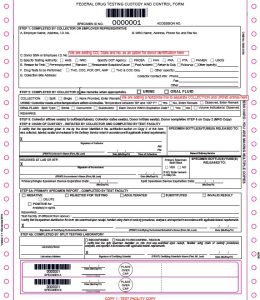A number of states have medical marijuana laws that permit people with legally-obtained prescriptions to use marijuana to treat various illnesses. The debate regarding whether marijuana helps people in those situations rages on throughout the country. However, the debate regarding whether marijuana negatively impacts workplace safety and productivity was resolved many years ago, and insomuch the question of how an employee obtained the drug should be, for the most part, irrelevant.
Marijuana is still the most commonly abused illegal drug in the United States. Employees under the influence of marijuana while in the workplace are less safe and less productive than their non-using co-workers. As such employers still have the obligation, as well as the right, to prohibit employees from being under the influence of marijuana, regardless of how the drug was obtained. Any drug-free workplace policy should state that fact and be clearly communicated to employees and job applicants.
As for “legal” vs. “illegal” drugs, employers do have the ability to restrict the use of prescription drugs if the they have an adverse affect on workplace safety (aka “fitness for duty” testing/programs). In the case of marijuana it is also still considered an illegal drug under DEA regulations. No urine tests show “impairment”, although under some programs a positive post-incident test is a “presumption of impairment”. Also, if you think about hair tests with up to a 90-day look back, there is clearly no direct cause and effect relationship. The drug testing programs should be more about keeping drugs and drug using employees/applicants out of the workplace because of the adverse effects of drugs.
Each of the states with medical marijuana laws have slightly different language surrounding its legality. With that in mind, as an employer it’s important to know the laws in the states where you have employees.
Pro-marijuana groups continue to push their cause to the next level. California’s Proposition 19, which will appear on the November ballot, proposes to legalize the possession and use of small quantities of marijuana without regard to a medical prescription. It would also allow permit local governments to impose and collect marijuana-related fees and taxes.
Yet, marijuana, including medical marijuana, remains illegal under federal laws. The U.S. Supreme Court has ruled that federal agents can arrest medical marijuana users and growers regardless of state laws and both the DOT and SAMHSA advise MROs that “medical marijuana” is not an acceptable alternative medical explanation for a laboratory finding of marijuana metabolite in a donor’s urine. Moreover, employers have the right to hold all employees to same standards of safe and responsible conduct in the workplace.
This article was provided by industry consultant Bill Current for use by Quest Diagnostics.
For more information about drug testing, visit our website.
 Your Privacy Choices
|
Privacy Notices
|
Terms
|
Language Assistance / Non-Discrimination Notice | Asistencia de Idiomas / Aviso de no Discriminación | 語言協助 / 不䈚視通知
Your Privacy Choices
|
Privacy Notices
|
Terms
|
Language Assistance / Non-Discrimination Notice | Asistencia de Idiomas / Aviso de no Discriminación | 語言協助 / 不䈚視通知



















A number of states have medical marijuana laws that permit people with legally-obtained prescriptions to use marijuana to treat various illnesses. The debate regarding whether marijuana helps people in those situations rages on throughout the country. However, the debate regarding whether marijuana negatively impacts workplace safety and productivity was resolved many years ago, and insomuch the question of how an employee obtained the drug should be, for the most part, irrelevant.
Marijuana is still the most commonly abused illegal drug in the United States. Employees under the influence of marijuana while in the workplace are less safe and less productive than their non-using co-workers. As such employers still have the obligation, as well as the right, to prohibit employees from being under the influence of marijuana, regardless of how the drug was obtained. Any drug-free workplace policy should state that fact and be clearly communicated to employees and job applicants.
As for “legal” vs. “illegal” drugs, employers do have the ability to restrict the use of prescription drugs if the they have an adverse affect on workplace safety (aka “fitness for duty” testing/programs). In the case of marijuana it is also still considered an illegal drug under DEA regulations. No urine tests show “impairment”, although under some programs a positive post-incident test is a “presumption of impairment”. Also, if you think about hair tests with up to a 90-day look back, there is clearly no direct cause and effect relationship. The drug testing programs should be more about keeping drugs and drug using employees/applicants out of the workplace because of the adverse effects of drugs.
Each of the states with medical marijuana laws have slightly different language surrounding its legality. With that in mind, as an employer it’s important to know the laws in the states where you have employees.
Pro-marijuana groups continue to push their cause to the next level. California’s Proposition 19, which will appear on the November ballot, proposes to legalize the possession and use of small quantities of marijuana without regard to a medical prescription. It would also allow permit local governments to impose and collect marijuana-related fees and taxes.
Yet, marijuana, including medical marijuana, remains illegal under federal laws. The U.S. Supreme Court has ruled that federal agents can arrest medical marijuana users and growers regardless of state laws and both the DOT and SAMHSA advise MROs that “medical marijuana” is not an acceptable alternative medical explanation for a laboratory finding of marijuana metabolite in a donor’s urine. Moreover, employers have the right to hold all employees to same standards of safe and responsible conduct in the workplace.
This article was provided by industry consultant Bill Current for use by Quest Diagnostics.
For more information about drug testing, visit our website.